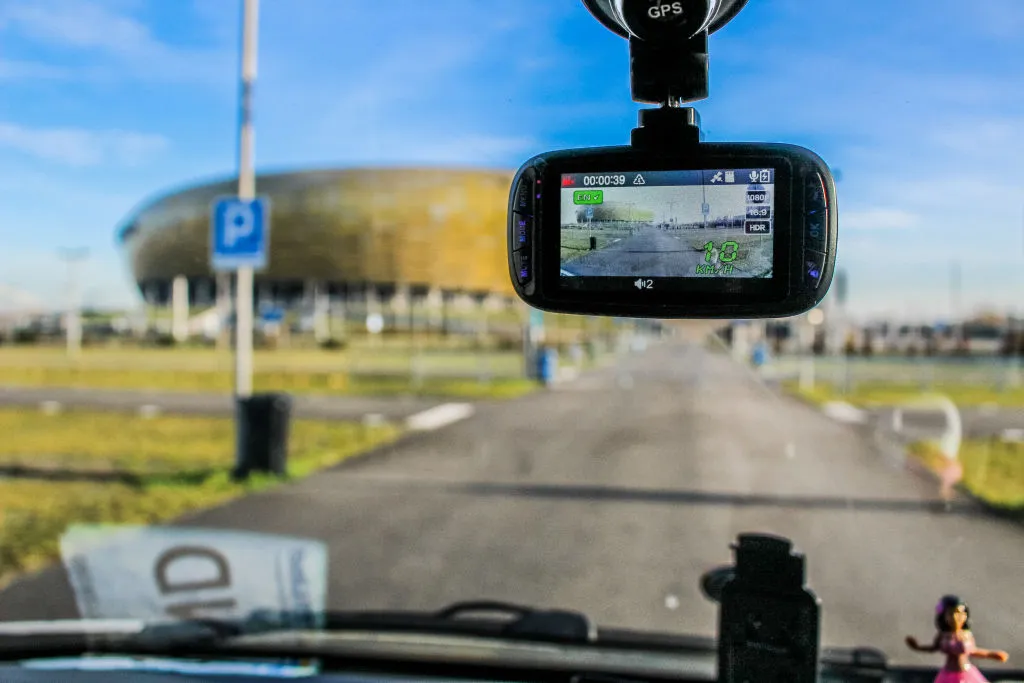Dash cams, or dashboard cameras, are increasingly popular among drivers. The footage they capture can be valuable evidence in case of accidents, insurance disputes, or even incidents of road rage. However, it’s essential to understand the regulations surrounding the use of dash cams in Connecticut before you install one in your vehicle.
Dash cams are compact video cameras that mount to your vehicle’s dashboard or windshield, continuously recording footage of the road ahead (and sometimes inside the vehicle). They can provide crucial evidence and offer the following benefits:
- Protection in accidents: Dash cam footage can help determine fault in an accident, protecting you from false accusations.
- Insurance claim support: Footage can expedite insurance claim processes and help prevent insurance fraud.
- Deterring unsafe driving: The presence of a dash cam can encourage both yourself and other drivers to be more cautious on the road.
- Capturing unexpected moments: Dash cam footage can sometimes capture unusual or even scenic moments during your travels.
Dash Cam Legality in Connecticut
In Connecticut, the use of dash cams in personal vehicles is generally legal. However, there are a few essential rules to follow:
- Placement: The dash cam must not obstruct the driver’s view of the road. It’s recommended to mount a dash cam behind the rearview mirror or on the lower portion of the windshield.
- Obstruction: Connecticut law prohibits attaching objects to the windshield that could materially obstruct the driver’s view. Ensure your dash cam is securely mounted and doesn’t block your line of sight.
- Audio Recording: Connecticut is a “two-party consent” state. This means recording audio of conversations inside your vehicle requires the consent of all parties involved unless you are the sole occupant.
Special Cases
- Commercial Vehicles: Connecticut employers may install dash cams in commercial vehicles. However, there may be policies and regulations regarding the notification of employees and the use of recorded footage.
- Rideshare Vehicles: Rideshare companies like Uber and Lyft often have specific policies regarding dash cam use in their drivers’ vehicles. Check their guidelines and any additional local regulations that may exist in cities like Hartford, Bridgeport, or New Haven.
Best Practices for Dash Cam Use
- Optimal Placement: Position your dash cam discreetly behind the rearview mirror to minimize windshield obstruction.
- Data Storage: Choose a dash cam with a reliable and adequately sized memory card. Some dash cams offer cloud storage options for added security. Manage your footage regularly to avoid storage issues.
- Respecting Privacy: If your dash cam captures audio, inform passengers that they are being recorded. Turn off audio recording or get explicit consent when necessary. Be mindful of where you park your vehicle; consider disabling the dash cam or adjusting its view to avoid recording private property or individuals.
When Dash Cam Footage Can Be Useful
- Traffic Accidents: Footage can provide invaluable evidence for determining fault in collisions. This is especially helpful in complex accidents or “hit-and-run ” situations.
- Insurance Claims: Dash cam footage can support your version of events in insurance claim disputes, potentially leading to faster resolution.
- Evidence of Other Driving Incidents: If you experience road rage, reckless driving, or other incidents, dash cam footage can serve as proof when reporting.
Frequently Asked Questions
- Can I use dash cam footage in court? Yes, dash cam footage is generally admissible as evidence in Connecticut courts. However, the judge ultimately decides the footage’s relevance and authenticity.
- Do I need to inform people I have a dash cam? While not strictly required by law, it’s good practice to disclose that you’re using a dash cam to passengers, especially if it records audio. In specific work environments or rideshare situations, this might be mandatory.
- What happens if my dash cam records something illegal? You may be obligated to report illegal activity captured on your dash cam to the authorities.
- Can my dash cam record when my car is parked? Yes, some dash cams offer a “parking mode.” When enabled, the dash cam will stay in a low-power state and start recording if it detects motion or an impact, offering protection for your parked vehicle.
Sources and Additional Information
- Welcome Law Firm: Do I Need a Dash Cam in My Vehicle in Connecticut? https://welcomelawfirm.com/blog/do-i-need-a-dash-cam-in-my-vehicle-in-connecticut/
- Expert Market: The 2024 Guide to Dash Cam Laws in Every US State https://www.expertmarket.com/dash-cams/dash-cam-laws-by-state
- Connecticut General Assembly – OLR Backgrounder: Body Cameras, Dashboard Cameras, and Other Police Recording Equipment https://www.cga.ct.gov/2020/rpt/pdf/2020-R-0173.pdf
- BlackboxMyCar: Are Dash Cams Legal in My Area? Dash Cam Laws in Every US State https://www.blackboxmycar.com/pages/are-dash-cams-legal-in-my-area-dash-cam-laws-in-every-us-state
Disclaimer: This article provides general information on dash cam regulations in Connecticut. It should not be interpreted as legal advice. If you have specific questions or concerns, always consult with an attorney or relevant authorities.
Conclusion
Dash cams offer drivers valuable benefits when used responsibly. Adhering to Connecticut’s regulations, employing best practices, and understanding your rights will ensure you make the most of your dash cam while staying safe and respecting the law.



